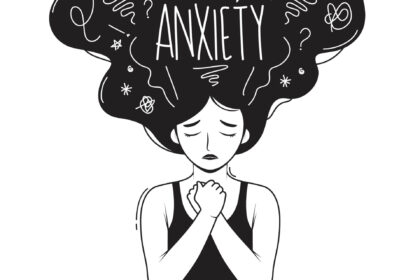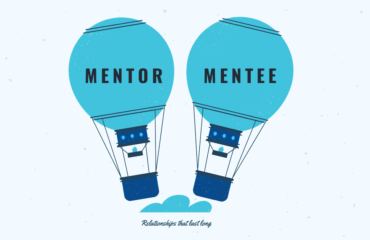
Anxiety is one of the most pervasive challenges in modern life. In a world that moves at breakneck speed, filled with uncertainty and endless notifications and noise keeping yourself at peace is not an easy task.. Anxiety could build up due to several reasons, people, or situations that are part of our day-to-day routine. Over time anxiety leads to situations which would outwardly reflect as Avoidance, Isolation, Blame etc. We are also very often overwhelmed by overthinking due to anxiety that it starts effecting our performance levels.
I was reading Nick Trenton’s insightful book Calm Your Thoughts, which offers invaluable lessons on managing anxiety and reclaiming peace of mind. Here are some transformative takeaways from the book, along with actionable insights that can help to keep the chaos at bay.
One of the most profound points Trenton makes is that anxiety thrives in ambiguity and grows when we try to avoid or suppress uncomfortable thoughts. When left unchecked, these thoughts can form a mental loop that feels endless.
The key? Awareness.
Becoming aware of our anxious thoughts is the first step toward dismantling their power. When we label our thoughts as “anxious,” we create a mental distance that allows us to observe rather than be overwhelmed. Some of the methods suggested by the author to overcome anxiety which caught my mind are as listed below.
Grounding Techniques
Trenton emphasizes the importance of grounding yourself in the present moment when anxiety strikes. Often, anxiety pulls us into an imagined future filled with “what ifs.” Grounding techniques bring us back to reality. The author has also suggested several techniques to ground us back to the present.
Questioning the Validity of Your Thoughts
Not every thought deserves your trust. Trenton advises readers to treat their anxious thoughts as hypotheses rather than facts. Our minds are meaning-making machines, and they often jump to conclusions that aren’t grounded in reality.
The next time a catastrophic thought pops into your mind like “I’ll fail at this presentation or review,” or anything similar, the author suggests asking ourselves the following questions:
- Is there evidence to support this thought?
- What evidence contradicts it?
- What’s the most likely outcome?
- Challenging the validity of your thoughts helps diminish their power.
Breath as an Anchor
It might sound non practical, but your breath is one of the most accessible and effective tools for managing anxiety. Trenton highlights the science behind deep breathing—how it activates the parasympathetic nervous system, signaling to your body that it’s safe to relax.
Letting Go of Perfectionism
Many of us experience anxiety because we set impossibly high standards for ourselves. Trenton reminds readers that perfection is an illusion and chasing it only fuels stress. Instead, aim for progress, not perfection. Celebrate small wins and remind yourself that done is better than perfect.
The Role of Self-Compassion
One of the most profound messages in Calm Your Thoughts is the importance of being kind to yourself. Anxiety often comes with a harsh inner critic. Learning to replace self-judgment with self-compassion is transformative.
Anxiety is a common but conquerable part of life. We all experience it at varying levels according to different situations and our conditioning. practicing awareness, grounding yourself in the present, challenging negative thoughts, and cultivating self-compassion, you can break free from the grip of anxiety. Remember, progress happens one small step at a time at time with the result that at times the gains are not even visible for a long period of time.
Do share your thoughts and experiences in the comments below on your experiences and methods adopted by you to address anxiety… To continue getting more such updates please follow my LinkedIn page Rejo’s Business Bytes or my website rejofrancis.com



